
As live streaming expands, challenges intensify
The world lost one of the only direct windows into the carnage in Homs, Syria, when Rami al-Sayed’s video live stream went dark Tuesday. A citizen journalist, al-Sayed was live streaming the Assad regime’s bombardment of Baba Amr and the brutal after-effects when he was struck by shrapnel and bled to death soon after, according…
Risk and reporting
Last night at London’s Frontline Club, CPJ launched its global survey of press freedom conditions, Attacks on the Press. The topic of discussion was the safety of journalists covering conflict and the panel consisted of journalist and documentarian Jenny Kleeman, ITN safety guru Colin Pereira, and journalist and filmmaker Maziar Bahari, who was imprisoned in…
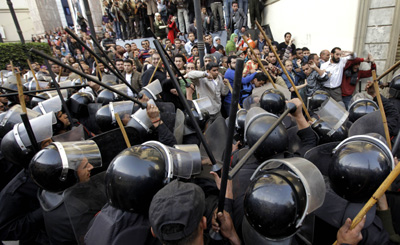
At Attacks launch, a look at Cairo’s post-revolution press
What a difference a year makes. In January 2011, we had to scrap plans for our regular Middle East launch of Attacks on the Press at the headquarters of the Egyptian Journalists Syndicate in downtown Cairo. Just a few blocks away, in Tahrir Square, journalists were busy fending off their own attackers as pro-regime thugs…
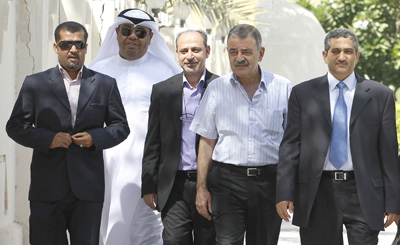
A year of repression: Bahrain continues crackdown on press
In the year since peaceful protests began in Bahrain on February 14, 2011, the government has targeted the press corps with assault, detention, harassment, and torture to obstruct their coverage. My organization, the Gulf Centre for Human Rights, has documented a systematic campaign by authorities to silence coverage of our country’s unrest. Here are just…
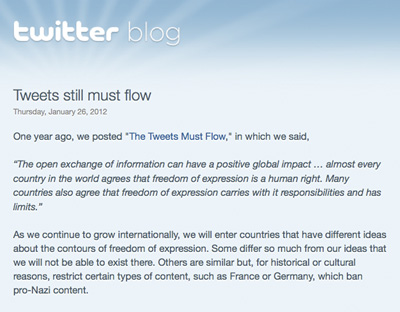
Can selective blocking pre-empt wider censorship?
Last week, Twitter provoked a fierce debate online when it announced a new capability–and related policy–to hide tweets on a country-specific basis. By building this feature into its website’s basic code, Twitter said it hoped to offer a more tailored response to legal demands to remove tweets globally. The company will inform users if any…
Google+, real names and real problems
At the launch of Google+, Google’s attempt to create an integrated social network similar to Facebook, I wrote about the potential benefits and risks of the new service to journalists who use social media in dangerous circumstances. Despite early promises of relatively flexible terms of service at Google+, the early days of implementation were full…
Tunisian media: One year after the revolution
The doses of freedom that the Tunisian revolution injected into national media have not been sufficient to revive it after decades of systematic destruction. It is not surprising that our evaluation of media one year after the tyrant fell reveals more negativity and pessimism.
Online publishers, developers sentenced to death in Iran
Politically-related Iranian prosecutions often take place in near secrecy, with unclear charges morphing and changing over time. It doesn’t get any easier to work out the motivations of prosecutors when the charges are connected to technology.
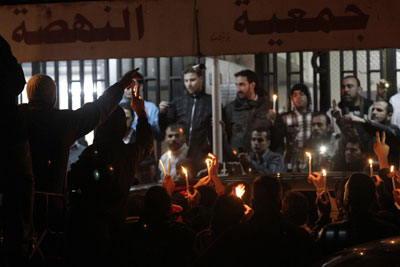
Jacquier’s killing raises chilling questions on Syria
The killing on January 11 of a French TV reporter has sent a chill through the international press corps trying to cover the violence in Syria. Gilles Jacquier, 43, who was on assignment for the French public service channel France 2, was a seasoned journalist and the laureate of France’s most prestigious journalism prizes. As…
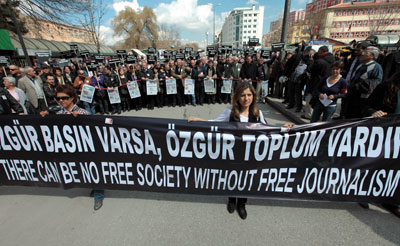
Responding to Turkey’s appalling press freedom record
Prime Minister Recep Tayyip Erdoğan would like to take credit for Turkey’s economic growth and increasing regional influence, but when challenged on his country’s abysmal press freedom record he tends to blame others, including the media itself which, he says, exaggerates the problem. But the facts speak for themselves, as I noted in a letter…